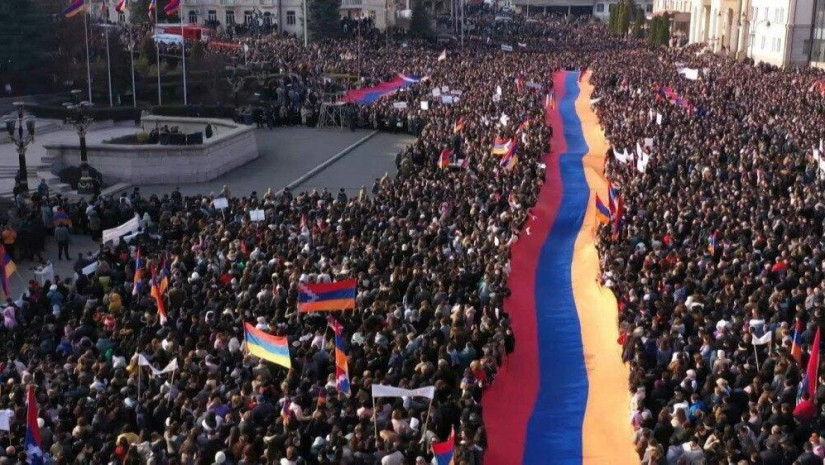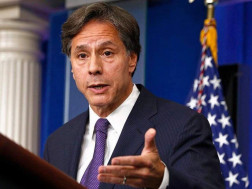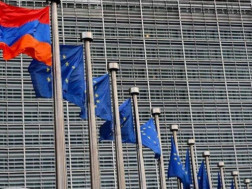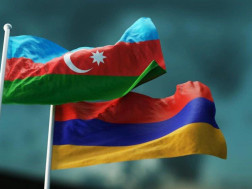Thousands of people rallied in Stepanakert on December 25 to demand that Azerbaijan unblock the sole road connecting Nagorno-Karabakh to Armenia.
Karabakh’s political leaders, who organized the rally, struck a defiant note as they addressed the crowd that gathered in the city’s central square on the 14th day of the road blockade that has led to serious shortages of food, medicines, and other basic goods in the Armenian-populated region.
They appealed to the international community for urgent intervention in the face of what they see as Azerbaijani efforts to drive Karabakh Armenians out of their homeland.
Ruben Vardanian, Karabakh’s de facto premier, said the local population has been left with three options.
“First, we submit and sooner or later integrate into Azerbaijan,” Vardanian said in a speech. “Second, we get out of here. Third, we fight.”
“I made my decision on September 2,” he said, referring to the date of his relocation from Armenia to Karabakh. “I’m here, I’m fighting, and I’m not going to leave or obey Azerbaijan’s conditions.”
The Karabakh protest came amid what appears to be growing international pressure exerted on Azerbaijan.
French President Emmanuel Macron urged Baku to “allow free movement along the Lachin Corridor” when he phoned his Azerbaijani counterpart, Ilham Aliyev, on December 23. According to the French readout of the call, Aliyev expressed his “intention” to do so.
However, Aliyev’s press office quoted him as defending the Azerbaijanis who closed the corridor on December 12 ostensibly on environmental grounds. It said he told Macron that they are right to protest against “illegal” mining activities in Karabakh.
The road connecting Nagorno-Karabakh to Armenia was blocked by a group of Azerbaijani protesters demanding that Baku be allowed to inspect Karabakh ore mines, calling attention to what Azerbaijan says is illegal mining in Nagorno-Karabakh and the use of the road to transport the minerals to Armenia.
The authorities in Yerevan and Stepanakert have condemned the blockade as a violation of the 2020 cease-fire agreement that placed the Lachin Corridor under the control of Russian peacekeepers.
Aliyev also spoke on December 23 by phone with Russian President Vladimir Putin. The Kremlin’s readout of the call made no mention of the blockade.
Speaking in Baku on December 24, Aliyev said he would not bow to the international pressure. “Nobody can influence us,” he said.
Meanwhile, the European Union’s foreign policy chief, Josep Borrell, phoned Azerbaijani Foreign Minister Ceyhun Bayramov on December 24 for the second time in three days. Borrell later tweeted that they discussed “the need for freedom of movement and humanitarian access through the Lachin Corridor.” He described the conversation as “constructive,” RFE/RL reports.
















